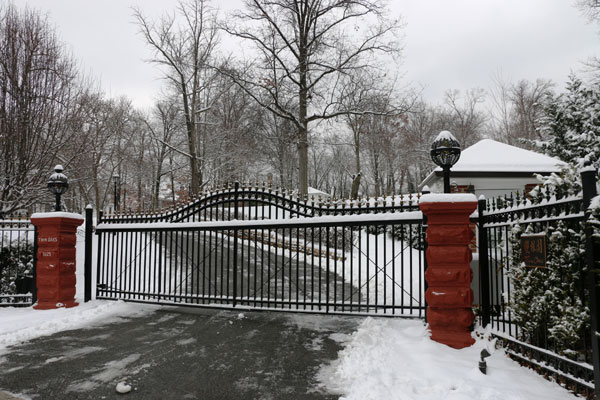Flag-raising against historical tide
By Shen Dingli (China Daily) Updated: 2015-01-08 08:32
 |
|
Twin Oaks Estate in Washington seen on snowy Tuesday. A ceremony of raising Taiwan flag here on January 1 drew protest from the Chinese government and disappointment expressed by the US government. Chen Weihua/China Daily |
On Jan 1, the Taipei Economic and Cultural Representative Office (TECRO) in the United States held a ceremony at Twin Oaks to "raise the flag". It was the first time it has done so since Washington severed its official relations with Taipei in 1979.
However, the significance of this event is being exaggerated. The US State Department on Tuesday denounced the flag-raising ceremony, saying it violated a long-standing pact on US-Taiwan ties.
Since the US normalized relationship with Beijing, Washington has not allowed the Taiwan flag to fly on any official occasions in the US, because the US does not regard Taiwan as having legal statehood. Therefore, TECRO at most is an "official organization" of a non-state entity. Obviously TECRO cannot raise flag in the US on formal occasions where the US officials would be present.
"Raising the flag" does not accord Taiwan any statehood internationally, it is merely self-amusement.
But there is an aspect to the incident that is of concern, Washington may have tolerated the flag. It is hard to believe that the US government was not informed of the event prior to its happening. The Obama administration seems to have tacitly allowed TECRO to signal a change in the US' established position.
China and the US have built, over the past 35 years, their official partnership. With their three communiqués establishing the One-China Principle, China and the US have largely stabilized not only their bilateral ties but also the balance in the Asia-Pacific, fostering peace and prosperity in the entire region. Past experience shows that as long as the US honors that commitment, all stakeholders in the area will benefit from the status quo. "Raising the flag" in this way on American soil violates the US commitment to the One-China Principle.

I’ve lived in China for quite a considerable time including my graduate school years, travelled and worked in a few cities and still choose my destination taking into consideration the density of smog or PM2.5 particulate matter in the region.











